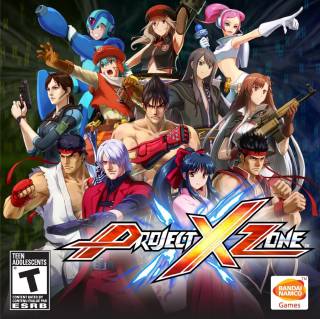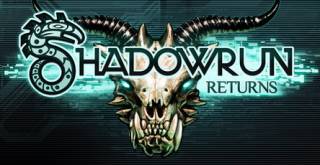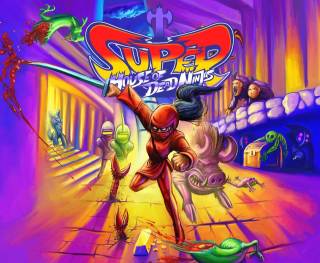Mainlining Heroines
By Mento 43 Comments
Female Protagonists!
All right, so before we begin in earnest, some ground rules:
- This blog is in no way meant to support or counter the arguments of a Ms. A. Sarkeesian. Lord knows the internet's full of that (as well as being just full of it in general) already. I know how threads on the topic of the Tropes vs. Women in Video Games video series tend to snowball into avalanches, so this is the last time I'll be mentioning it.
- For that matter, this is a Mento blog. If you wanted an earnest, well-researched, serious social studies piece about feminism in the games industry this is probably not the place to find it. Not that I'll be calling everyone 'skirts' and comparing and contrasting their ability to make sandwiches either. The reason for this is similar to the above: I lack the knowledge and expertise to make any sort of decisive case for feminism and attempting to shoehorn that argument in is likely to turn this innocuous observational blog about female main characters into a poopstorm. I'd become the Ark of the Covenant, in that I'd be the target of every dude in a fedora. Yeah, I'm a wuss.
So rather than actively deciding to jump on board the whole "more women in the industry" train to internet infamy and misfortune (though I'd be very much on their side should this conflict escalate beyond its already irrational current point) this blog came about due to a simple observation I've made about the games I've played so far this year. Specifically, the five games I've beaten that came out in 2013. Each one, without exception, had a female protagonist.
Of course, it gets a little more technical than that on closer viewing. Which then lead to a secondary observation: Each of these games employs a female protagonist differently, with a different approach to garnering interest in a feminine main character, and in one case was entirely by my own decision via a character creator. All the same, I've inadvertently hit upon five very disparate approaches to building a game around a female protagonist.
Tomb Raider - "AAA Asininity"
Tomb Raider might be the most interesting case, as it is the only 2013 AAA game I've currently played this year. I plan to play more, of course, but circumstances are such that I tend to focus on games I can buy as well as food, rather than instead of food. As an AAA game, Tomb Raider had the biggest challenge to overcome in presenting its female heroine - the perennial Lara Croft - as a worthy protagonist to the millions of male teenagers and dudebros the industry's tunnel vision continues to be inexplicably fixated on. A hot topic of many a recent Jimquisition, the core publisher-led industry is losing traction to the no-longer-really-burgeoning Indie market because it seemingly no longer cares about anyone that sits outside of what it perceives to be the chief target demographic of 14-25 year old males. So we get games like Fuse which are focus-tested to mediocrity and games like Remember Me which almost couldn't get off the ground with its female hero Nilin in case her heterosexual advances towards male characters made male gamers "uncomfortable".
I find all this endlessly fascinating. I've long since grown out of concerns about cooties or how women are these inscrutable, unpredictable creatures or how straight I might actually be really. But more so than that, how much of a kerfuffle Tomb Raider's pre-release marketing made of its main character despite her long, well-established legacy. We're all familiar with the "you'll want to protect her" gaffe, but that really just came about due to a producer - one who was presumably involved with many earlier Tomb Raiders - being suddenly informed that he had to justify why anyone would want to buy a game where you play as a girl. Specifically, one that wasn't overly sexualized and featured in a far more grounded story (well, until the samurai mummies) about survival. The ludicrousness of that situation was presumably what lead to that regrettable, inexplicable reason we were given for why gamers should want to play a Tomb Raider game. Because "you shoot stuff and collect treasure and solve puzzles and have fun" no longer cut it, for whatever reason.
Anyway, the barest of research into the Tomb Raider franchise would tell you that the reason Lara Croft isn't Larry Croft is that the original designers thought it would be a neat change of pace for their new kind of action game. They placated the squeamish publishers by giving Lara Croft unnecessary conical bosoms and convincing them that her sex appeal would sell copies, which it did. Obviously that approach couldn't work as well today, with everyone on edge about sexism and sexual objectification, which is why we got the far more insidious form of "she's too vulnerable" sexism instead. Hooray for progress.
In all seriousness, this is but one of many concerning issues AAA games are having right now with regards to their marketing and design decisions. Those million dollar games have been losing out to the smaller types on Steam and XBLA/PSN and iOS and what have you for a while now, and so we see them desperately trying to grasp onto male adolescents like a creepy uncle. It's probably only a matter of time until the next wave of mascot platformers with attitude show up.
Project X Zone - "Ensemble Cast"

Conversely Project X Zone, for better or worse, doesn't give the slightest care about how it intends to reach as wide an audience as possible. The game is happy to get as esoteric as it likes to appeal instead to a smaller extant fanbase familiar with the many games featured, rather than attempting to branch out and focus on any kind of accessibility. Unfortunately, this means the game can get awfully pandering at times, especially where buxom female characters are concerned.
It does have a female main character though - Mii Kouryuuji is the scion of an influential family to whom the game's big MacGuffin dimension-hopping stone belongs and is the character most often at the center of the frequent battles that drive the plot forward. It's hard to make a case for Project X Zone having a central protagonist, given it has a population of around 60 playable characters that are added and removed from the party at various intervals. Mii and her ninja bodyguard/tutor Kogoro are unique in that they were specifically created for the game, whereas everybody else is a guest from the respective ludographies of Japanese publishing giants Capcom, Namco Bandai and Sega. The game jokes about her "fan service", but she's integral to what little story Project X Zone has and she does eventually awaken to a power that allows her to save the day. Jiggling animations and revealing costumes aside, the game does at least acknowledge that a female lead character can be a courageous and competent hero in her own right.
But I really can't make the case for Project X Zone being socially progressive. There's almost enough PG-rated lasciviousness in there to make a body pillow enthusiast throw up their hands in disgust. It's all done with a certain sense of goofy fun that doesn't go out of its way to diminish its female characters as weaker or less intelligent than their male counterparts, excepting a particularly guileless princess or two, so it's almost excusable in that regard. Yet both it and Dragon's Crown are facing the same kind of criticism here: though clearly no offense was meant, it's hard to continue to exonerate this sort of behavior. For women, it feels exclusionary, like they're strangers in a strangely pneumatic land. For men, it feels too pandering, like someone decided the tight gameplay and wonderful artwork alone weren't enough reason to want to play a game without a pair of anime boobs bouncing around in our face to seal the deal. It's a tad insulting to both genders, frankly.
Shadowrun Returns - "Blank Slate"

Shadowrun Returns, like a great many other Western RPGs, allows you to craft a character out of the ether, choosing every element of their composition from scratch. This is ostensibly to allow the player to project themselves into a different universe, creating a facsimile of themselves (or how they choose to perceive themselves) that makes decisions on their behalf. I've never appreciated that approach to creating a relatable protagonist. There is, of course, a second school of thought on tabula rasa characters: That we simply invent our own narrative heroes, possibly ones that couldn't contrast with the real us any further, and let them wreak havoc on a world that never anticipated them. This is the approach I find I greatly prefer.
But then I have trouble being evil in games. This is in part due to how game writers equate "evil" with "lunatic". Sure it's fun to be an unpredictable psycho, but only for a limited extent in a game rich with dialogue and NPC interaction which you're missing out on by killing everything. After all, you can only derive so much enjoyment from Law of the West by shooting everyone in the head as soon as they start strolling across the screen. Sneaky and selfish are better applications of an evil temperament, where the goal is to blackmail people and earn money and power by being generally underhanded, but even that wears out its welcome as you cease to be sympathetic with the "hero" and the decisions they're making. So I usually stick with the do-gooder archetype more often than not. It means being sent to every corner of the globe and going out of my way to help people, but then it wouldn't be much of a game if you just told every quest sponsor to "deal with it".
So what this is all leading to is the revelation that I usually pick a female character in games where the player is expected to generate their own protagonist. I wouldn't be so patronizing to say it was because of the novelty, or so chauvinistic to say it's because I like having a pretty lady front and center to stare at as she goes about saving the world. Rather, a female hero is one that I'm always going to have trouble relating to, but no problem emphasizing with. (Or maybe vice versa?) She's not me, since she's a completely different gender (or a different gender construct at least) and so it's easier to give her motivations and desires that occasionally run completely perpendicular to my own. She feels more like a fictional character I've helped create, rather than some self-insertion clone. I can absolutely understand why gamers would choose to go a different direction with their generated characters, but I've personally never felt comfortable projecting myself into my video game adventures and I've found that switched genders is the easiest way to distance the player from the creation in that respect. I figure it's all fine and dandy as I don't go all Pygmalion on one of these heroines some day.
Super House of Dead Ninjas - "Just Because"

This relates more to the old Tomb Raider than the new one, and games like the original Metroid, where the hero was chosen to be female simply because. With Super House of Dead Ninjas's Crimson Ninja, who might as well be a non-entity in terms of character and motivation right up until the ending, the decision to make her a woman seems like an entirely superficial one. There's absolutely nothing wrong with this approach either.
In fact, I'd go so far to say that creations like the 8-bit Samus Aran and Ms. Pacman and the Crimson Ninja - old school video game heroines who were women for stylistic reasons as frequently as narrative ones - are why modern resistance to female main characters is all the more baffling. The key, I believe, is in how little plot these older (or deliberately old-fashioned for nostalgia's sake) games tend to have. Players don't have to deal with detailed motivations and love interests and dramatic moments and it's far easier to relate to some mute badass out for gold or fame or revenge regardless of their gender. As the game industry tries to evolve its narrative elements and create more meaningful characters with deeper backstories, we see more and more people who are apprehensive about stepping into the shoes of a female protagonist and adopting her views and wants. Which means this problem isn't going to go away any time soon, unfortunately. Not unless we all decide to do away with big story-focused games at least, which may not be such a bad idea depending on your view.
Gone Home - "Empathy"
This leads us to Gone Home. There's a dichotomy here, as the two most important characters are a very well developed (but not in that way) female character and another female character who might as well be a voiceless cipher for the player. We experience the travails of the younger Sam Greenbriar through her diary entries which unlock as the player, as older sister Kaitlin "Katie" Greenbriar, comes across various notes and items of interest around the conspicuously empty house her family had moved into during her time away.
Sam's the real star of the game. The entire plot, such as it is, is focused on her and the developments in her life in the year since Katie left home. The secret behind her disappearance becomes gradually clearer as more of what's been happening is brought to light. This is a game that absolutely requires you to be involved with the story she's telling through her journal entries, as the exploration gameplay is built towards aiding your understanding of her situation. It is the motivation to continue searching each room of the house and instills a purpose behind checking every drawer and looking at every scrap of paper. That the game is so contingent on the player caring about a teenage girl and her problems is amazing for a number of reasons.
It's actually kind of interesting how much of a non-entity Katie is in comparison. Though most of her belongings are still taped up inside boxes from the move, you find the occasional personal artifact that suggests little more than a well-behaved, straight A student. It does help flesh out the little sister character by providing this shadow she's had to live beneath, but it seems like a conscious decision was made to make Katie as uninteresting as possible; to shift the game's spotlight onto Sam instead. It's one of many curious inferences you can make in the game from the large amount of subtext it packs inside its many documents, such as finding two identical pieces of sex education coursework about the menstrual cycle and discovering how the two sisters independently approached it.
It's been curious to see the reception this game has gotten since its release. As much as I enjoyed it, the critical acclaim almost seems hyperbolic in scope. I do think it breaks new ground in this continuing trend I've noticed with Indie games that are discovering how little gameplay they can get away with including in order to emphasize their narrative elements, but I wonder how much disappointment such a novel approach is generating as well, especially with that moderately high price tag and short duration. I don't doubt it'll remain a divisive game.
The Bit at the End
In conclusion: Fuck Jerry "The King" Lawler. "Russian hands and Roman fingers"? What the hell is that about, seriously? Stop drooling over Table-san while you're at it, weirdo.
